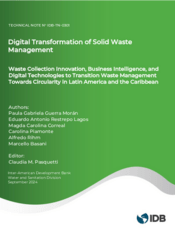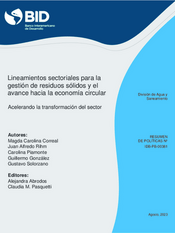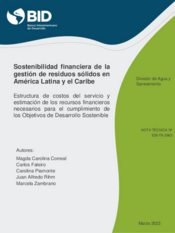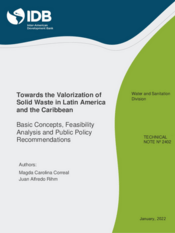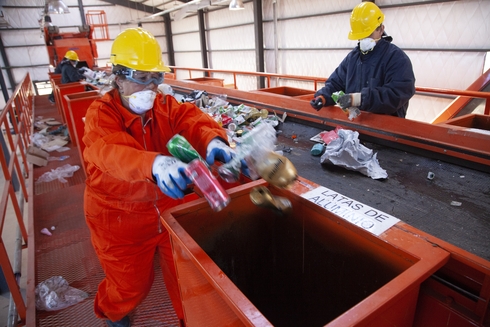
Adequate solid waste management and advancing towards a circular economy directly relates to public health, environment, greenhouse gas emissions, resilience to extreme events, economic development, and tourism. According to the Solid Waste and Circular Economy Hub, of the 230 million tons of municipal solid waste produced in the region, only 4% of waste is recovered, 46% is disposed of in sanitary landfills, and 50% is disposed of inadequately.
At the IDB, we support our lending member countries in their efforts to provide universal access to solid waste management services, advancing towards a circular economy, incentivizing waste prevention and recovery, and ensuring the correct final disposal of items that cannot be reused. Also, fostering change of behavior and community engagement.
We provide technical support and financing for projects that allow those objectives to be reached, through the financing of investment, capacity building, knowledge, and innovation.
to collection, transport, and final disposal services in a consistent, quality manner, as well as improving operational performance.
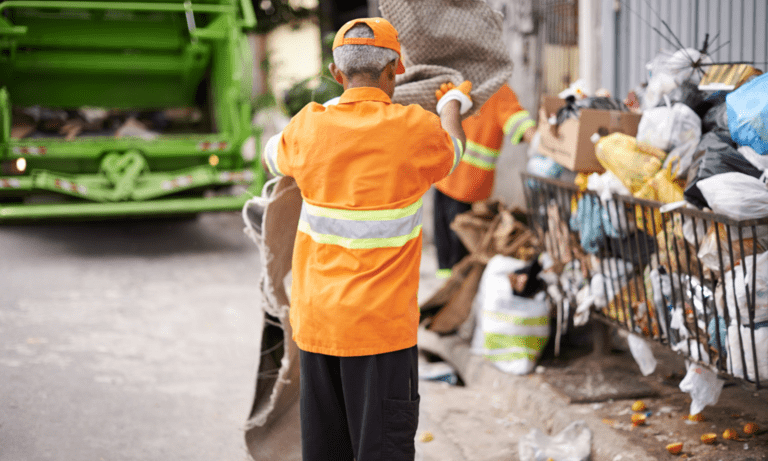
of waste generation, reducing consumption, reuse, and industry responsibility, particularly improving responsible management of plastics.
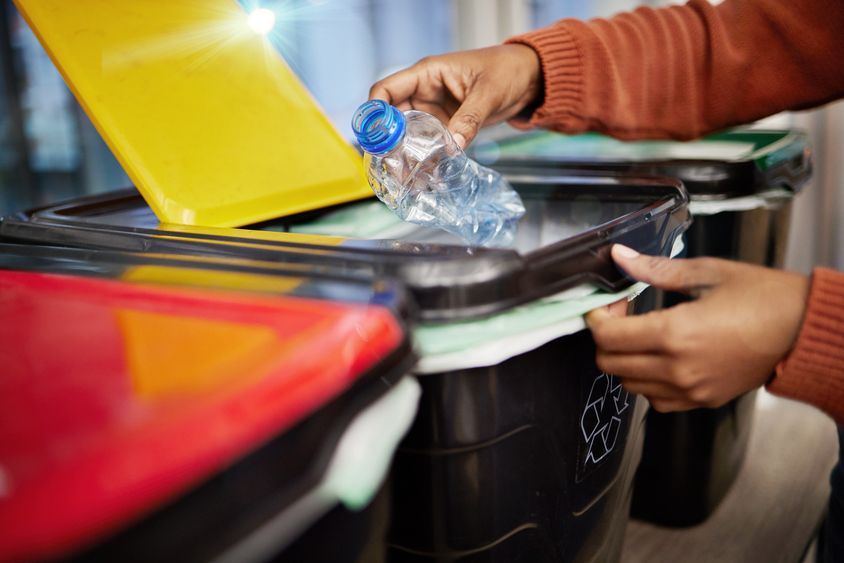
development of plans, policies and standards, information systems, and social inclusion.
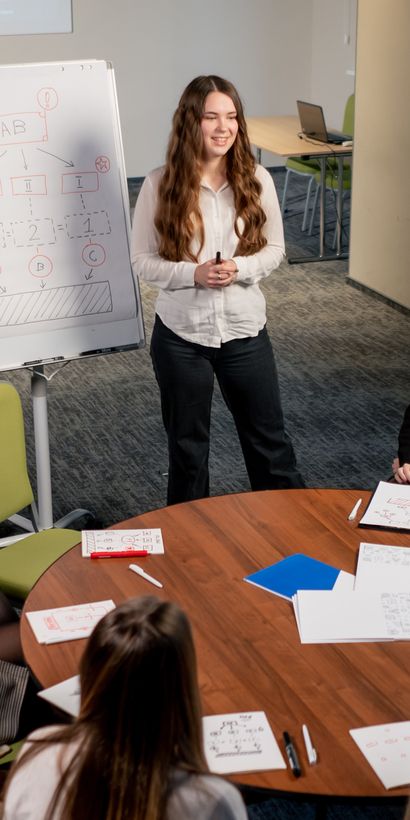
of service provision and allow resource leveraging from other sectors.
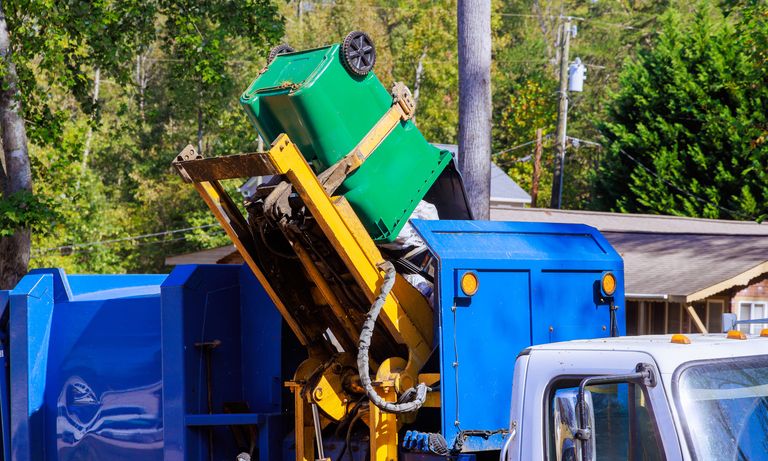
promoting digital transformation, and other strategies of research and development.
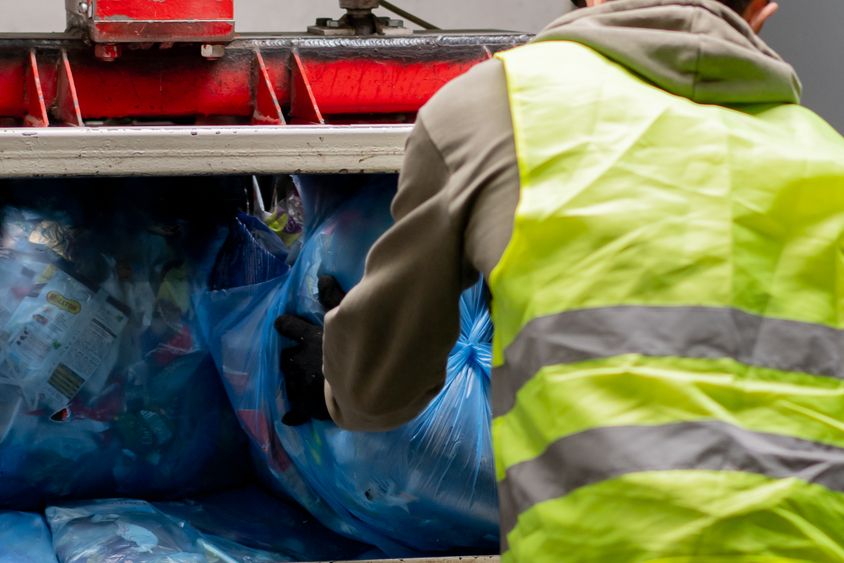
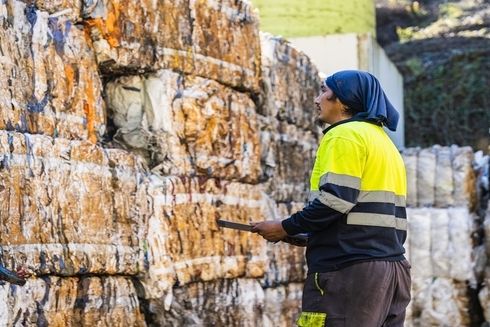
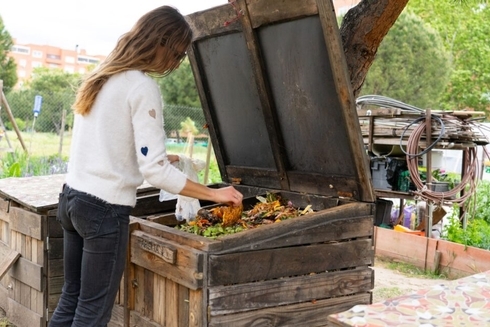
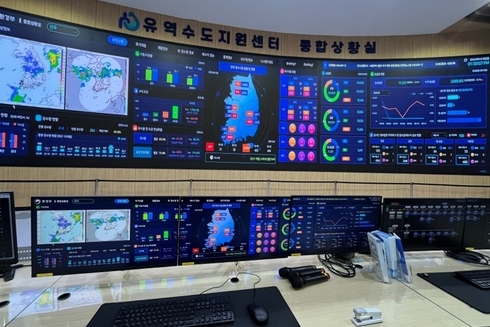
The Solid Waste and Circular Economy Hub for Latin America and the Caribbean was created as a regional public consultation system with open data and statistics on the management of material flows, solid waste and the circular economy. Derived from the information collected on the Hub, this publication contains the regional assessment of material flow: municipal solid waste EVAL 2023, which covers 14 management indicators to characterize the state of the sector in the region.
This document is a collection of available data on solid waste management in Latin America and the Caribbean (LAC).
This regional report is the product of the joint efforts of the Pan American Health Organization (PAHO), the Inter-American Development Bank (IDB), and the Inter-American Association of Sanitary and Environmental Engineering (AIDIS).

